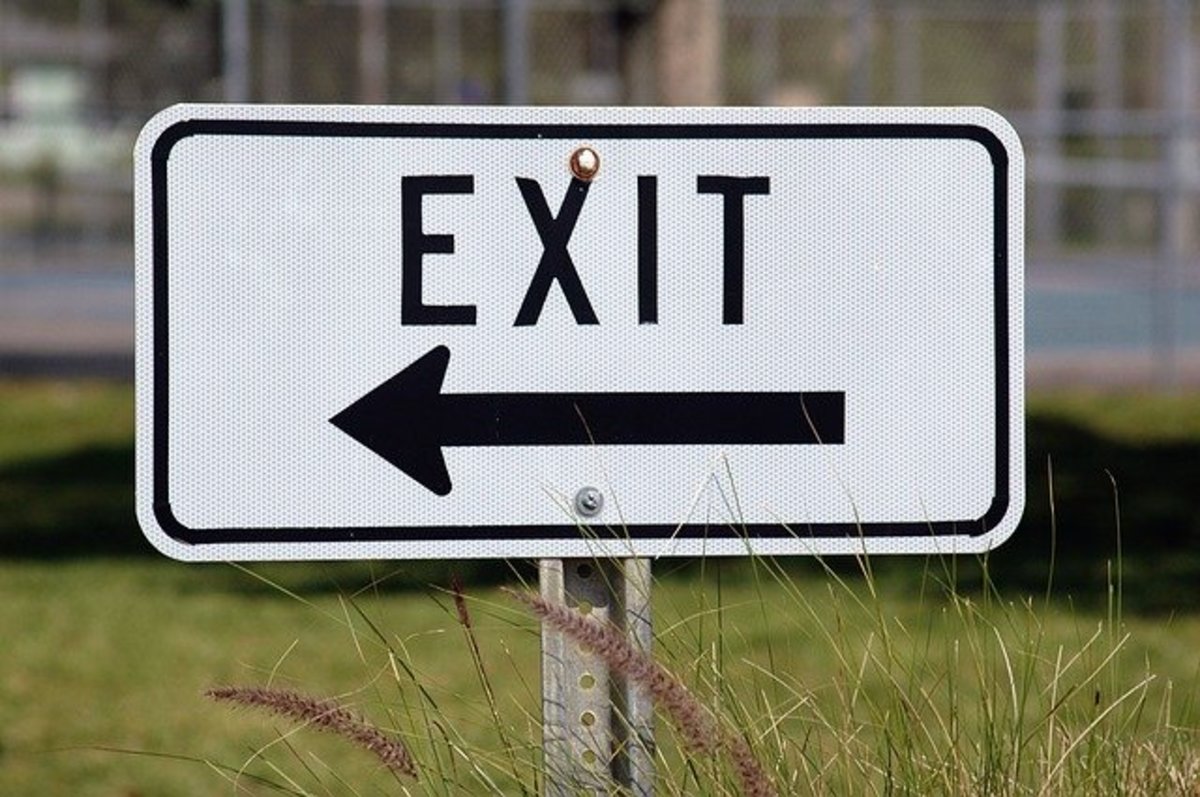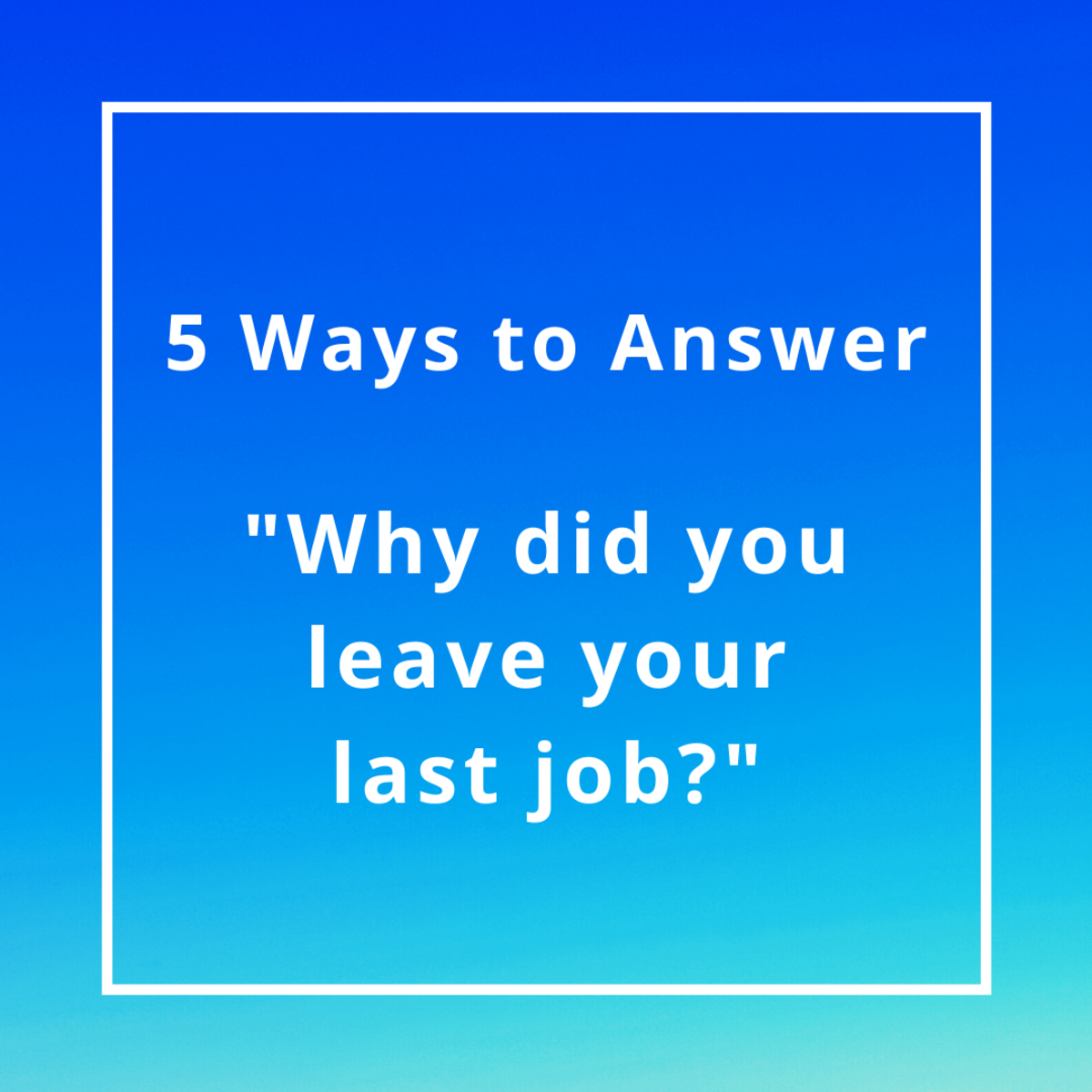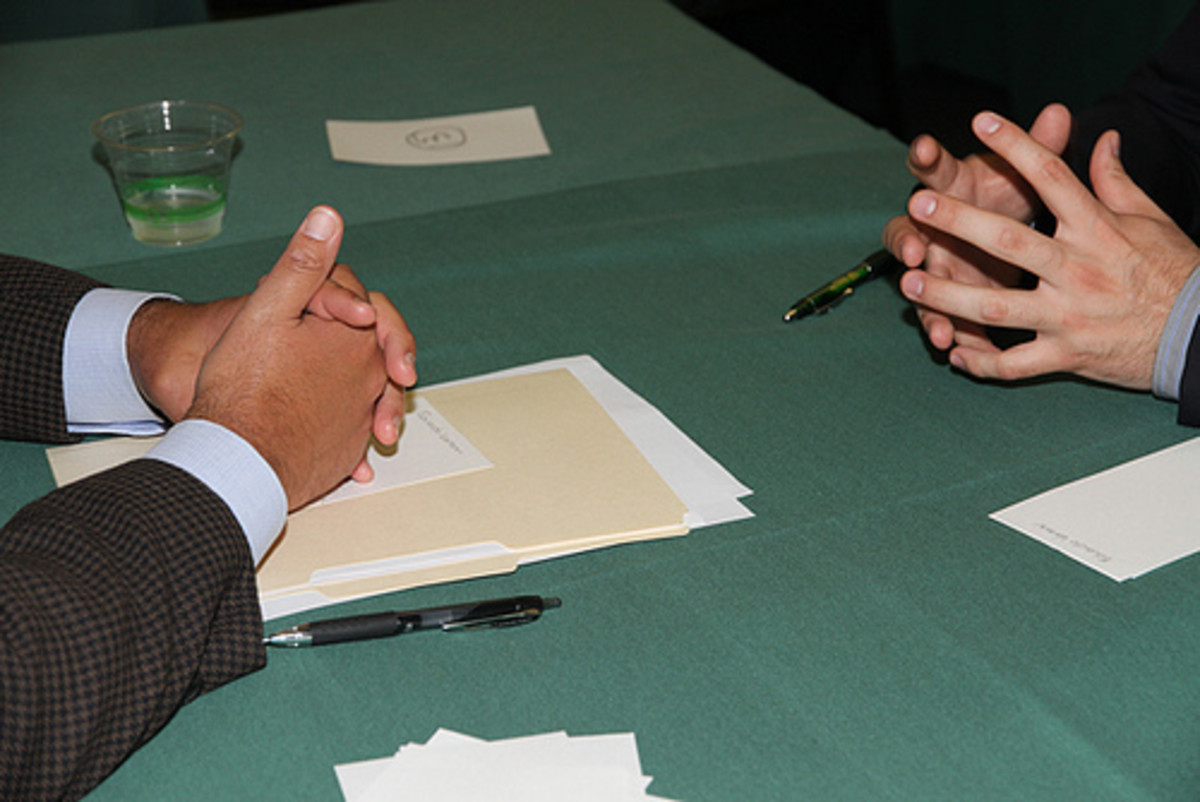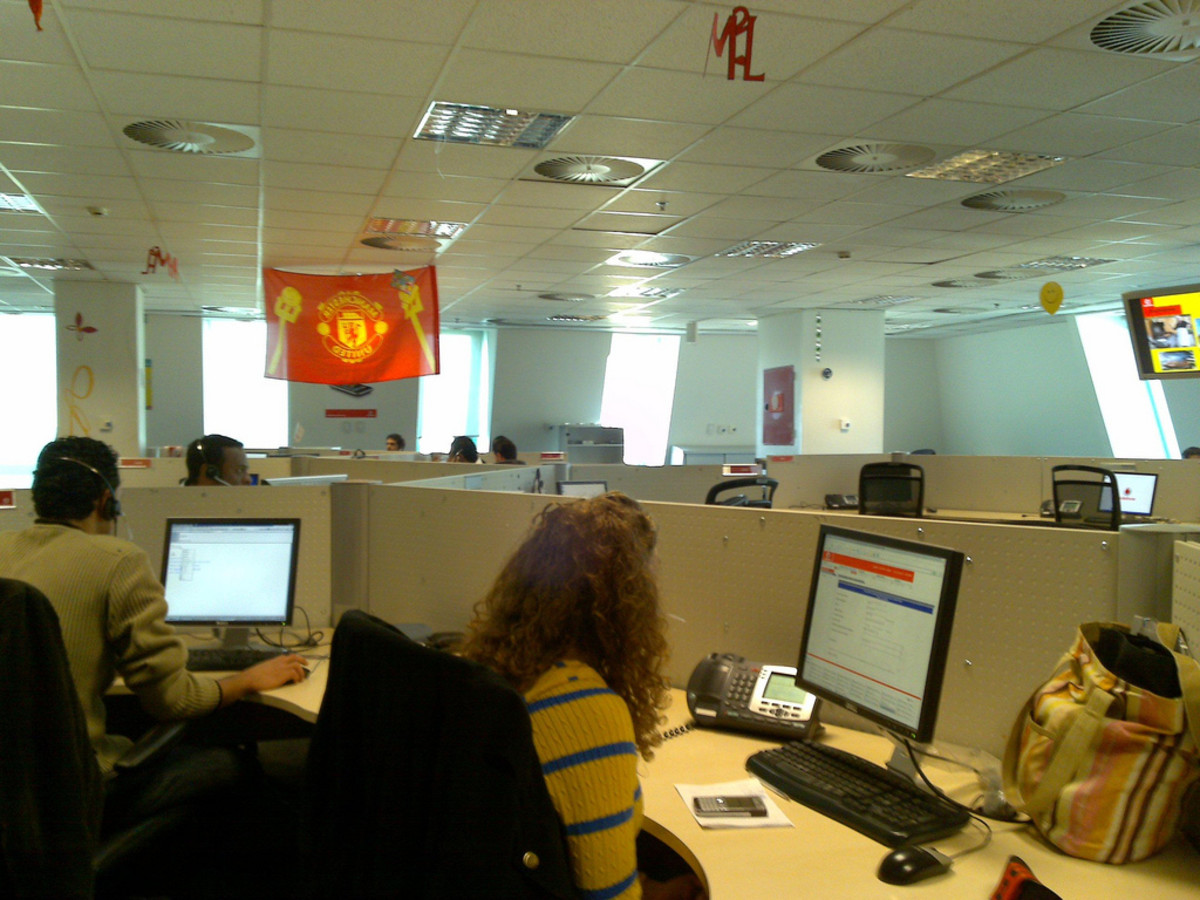ACE THE INTERVIEW
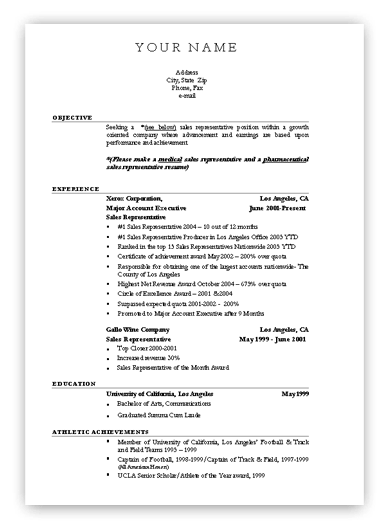
"Getting your Feet in the Door" - The Resume'"
With unemployment over 10%, it is extremely important that your interview goes well. Getting to the interview can be hard enough and if you blow it, it not only kills your chances of getting the job, but it can also be a blow to your interviewing confidence. Having interviewed for companies with success several times as well as having interviewed many candidates as an employer, I can tell you, that what you say, how you look, and your non-verbal communication can and will affect the outcome of the overall interview.
The first step is getting your foot in the door, your Resume'. After going through innumerable Resumes, I can honestly say that short and to the point is best. If your resume' is 3-4 pages of gibberish and industry language, you will likely not even get a look over. The people that are reviewing the resume's do not want a boring novel. They are looking for 1 page and to the point. If you need 2 pages, that is okay, just try to avoid anything more. Try to make it a full page if you can. Anything less than a full page shouts I don't have enough time or concern to write a decent resume' and that is how I feel about work. Whatever job you go for, don't be fooled into thinking that a resume' is not required because they make you fill out an application. If you are not applying to Burger King or McDonald's to flip burgers, don't apply without submitting a resume'.
A few key points about what the Resume' should incorporate. Your name, address, telephone numbers and e-mail should be in bold at the top. Be sure that your information is correct. There is nothing more annoying to a prospective employer than calling one of the numbers on the resume' and it is disconnected or inactivated. Also, if you are seriously looking for a job, your voice mail and/or answering machine should sound professional. If the prospective employer calls your phone and it goes to voice mail and they get some explicit rap/metal song or some sarcastic or humorous message it is a turn-off and they will not likely even leave a message and just go to the next resume'. 1st impressions are lasting impressions and a voice mail leaves a lasting impression. A simple, "Hello, this is John, please leave your name, number and a brief message and I will get back to you at my earliest convenience." is perfect.
Next, your resume' should look professional. A simple typed resume' will not stand out. There are plenty of programs out there that can format a resume to be eyecatching. with the proper bullet points and margin lines. They certainly say a lot about a person. They scream "Look at me!" and reflect the fact that the person who did it took the time to make it look professional. Never, never, never hand-write a resume'. If you have to, go to someone who knows how to design a professional resume' and ask for their help or pay a professional, but keep in mind, a professional does not know your background so be careful to fully explain what your responsibilities were at each company or organization.
The Objective should be professional and to the point. Using big fluffy words doesn't always work. You need to be specific and it should sound professional and not desperate. Something like, "My objective is to obtain a career with a company in the wireless communications industry that offers cutting edge products, opportunity for growth, a team atmosphere and unlimited potential for top producers. I offer several years experience in sales and customer service....". Professional, to the point, and not sounding desperate. YOU can make it generic per industry or special field, but I suggest being as specific as possible when you can. That way it looks like you took the time keep them in mind.
The Job History content is very important. You have to decide whether the format should be chronological or based on relevance to the job you are applying for. For example: If you are looking to become an outside sales rep, then it would be best to reference all of your previous sales experiences. If you are applying for an entry level position maybe the chronological format is best for that position. In general, you resume', should be appropriate to match the job you are applying for.
Your resume' is a reflection of you and your history. It can be a boring thing to read so be creative. If you were a cook in an Italian restaurant, don't just write. "I was a cook". Write something more creative like, "Worked in the food service industry, cooking Italian Cuisine." Make it have action. Passive sentences are boring. Don't describe what you were; describe what you did. Make it exciting, focus on ways that you helped the business. If you invented your own menu, say it. That tells a lot about you. Your history should reflect you and not be a generic stereotype. If you were a professional football player you would not write "I was a football player.". You would would want to write, "I played wide receiver for the Miami Dolphins, caught 1200 passes and scored 200 touchdowns in my career." Obviously, you would want to write more than one line for each job, but you see what I mean. You are being specific of the job as you did it. If you were a car salesman you would also want to mention any specific achievements you made, like if you made Salesman of the month for so many months. You see how that tells about you and not just the job. Remember, you are only trying to show your positive qualities and your strengths, not your needed areas of improvement.
Even though some employers may not be looking for experience, experience can certainly help. If you are applying for a position in which you lack the experience to meet the minimum qualifications, don't be surprised if you don't even get an interview because there is always someone out there with more experience than you. BY applying for a position that you seriously lack the necessary minimum experience, you are wasting your own time and the prospective employers time. A rejection is almost guaranteed. A rejection can lower your level of confidence during you job searching. Too many rejections will certainly affect your confidence, which may affect your performance in future interviews by causing unnecessary nervousness and anxiety.
For instance, if you are considering applying for a nursing position and have no medical training, you will look ridiculous and waste precious time you could have used to apply to jobs that you have a real chance of getting. Furthermore, if you apply for a position within a company and lack even the minimum qualifications, you can hurt your chances of ever applying for that company again. Say, for instance, that you applied for a nurse position at a hospital, but have no medical training and you they reject your application. Later a receptionist position comes up and you are more than qualified for that position so you apply for it. However, it is very likely that the prospective employer will check to see if you were ever rejected by them before. In most cases they will even ask if you have ever applied or worked for their company before. You've already wasted their time before so they won't even consider wasting their time with you again.
Occasionally, you will run across a job that you may not have had the exact experience necessary. However, you do have some similar experience at different levels. You may be applying for a retail manager position, but have never truly been a retail manager. After considering your own job history, you realize that you were a trainer and mentor for several years; you were in charge of ordering and keeping track of inventory and was a key holder for a convenience store. Although you were not a manager, you performed many of the duties, that a retail manager performs so you have to word your resume' with that information in a way that reflects and highlights those attributes.
Your resume' is a work in progress. It should be up to date and reflect dates of employment. Gaps do not look good on a Resume'. If you were unemployed because you had a child and were playing homemaker, list that. No need to go into too much detail, people understand having to raise a family. If you were unemployed because you were between jobs, that is fine, as long as the gap is not long and if there was there should be a good reason, like "Wrote a Novel". If you did not have a good reason for a long gap, then you may want to keep the dates of employment and gaps off the resume' and just list the number of years employed at your previous jobs. It will likely come up again on the application and you will have to list the dates there and be ready to explain the gaps.
Some people put hobbies and extras in there. They are nice, but they are not essentially needed. If you hobby is basket weaving, and you are applying to be an accountant, it really will not make a difference if it is on there. However, if your hobby is photography and you are applying to be a photographer, it certainly is relevant. Don't get me wrong, I used to put Golf and some interviewers would ask about that. Sometimes it helped to break the ice, other times it was irrelevant.
Some necessary info in addition to the objective and job history is your education and military background. Your college history should be listed. High School is usually assumed in these days and they do not need to be listed, unless it was for something like a performing arts HS and you are applying for a performing arts job. Otherwise, college as well as any other education like technical schools, etc..., should be listed. Years attended is not necessary as it can give away your age (but you can if you want), therefore, you only need to list the name of the school and degree obtained and/or number of years attended. If you had awards or honors, list them per school. If your GPA was high list it. If it was less than a 3.0, don't bother listing it. If you list any other section just make sure that they are relevant. If they are not relevant, they do not likely need to be there. Also, I would not provide a list of references with the resume'. If the prospective employer needs them, they will ask you for them, usually on their application.
I do suggest an nice cover letter suited for the position you are applying for. Reiterate your objective and be specific to their company. Don't just copy your objective. You need to paraphrase it and expand on it briefly. You can also write if you researched their company and tell them what you liked about their company. It doesn't need to be more than one or two paragraphs.
Whatever you do, DON'T LIE!!! Lying will get you rejected quickly if you get caught and if you don't get caught, you may get hired and be fired for lying, which is even worse, so whatever you do just tell the truth. Companies can and in most cases, do check your background. You'd be surprised how much they can find out about you. Additionally, if you have a Blog or Social page like Facebook or Myspace, etc..., the prospective employer may do a see search for you. If you are public, you can sabotage your own chances for employment, so be careful what you put out there (Pictures, videos, blogs...).
Additionally, do not write the reasons for leaving your previous employers on your resume'. They will likely ask this during your interview if you get one. The application may ask, and if it does, you can write stuff like found better opportunity. Never, put your previous employer down or write that you disliked or did not get along with someone. Furthermore, it is extremely important to make sure your grammar and spelling are correct. Have others edit it for you. Errors can stand out like a sore thumb and can be taken as an applicant being too lazy to proofread. The less mistakes you have and the more professional it looks, the greater your opportunity for an interview.
Please remember, If you do not get an interview, it does not mean that your resume' was no good; it may just mean that there were many other applicants who were better qualified. Many times companies hire internally and give the internal person 1st dibs on a job. Other times it is your resume' Was the spelling and grammar correct? Did you appear professional or did it appear sloppy and effortless? Did you have someone else review it to see if it sounded good. Always ask them to be 100% honest and tell them you will not get mad if they tell the truth. Even if it hurts your feelings, you need them to be candid with you. Lastly, don't get discouraged if it takes some time. A resume' is always a work in progress. Inmost cases, the more time you put into it, the better it gets.
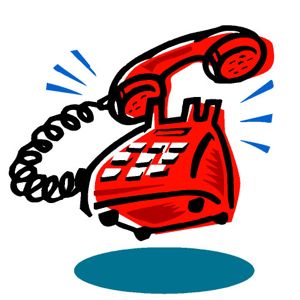

The Call and The Phone Interview
If you do get a call from a prospective employer, congratulations. You are one of a select few who have gotten the opportunity. If you have applied to several jobs and haven't received a call from any of them, you may want to review and/or tweak your resume' again. Sometimes your resume' is what is holding you back from getting a call. If 50 people apply for the same job and you get a call that's great because the chance of even getting a call with that many applicants is like 1 in 5. The average number applicants that they select for a phone interview is is somewhere between 10-15 so your chances may be 1 in 12. Although the odds are not stacked in your favor, there are a number of factors that must be considered. Lets assume that 4 or 5 of those candidates jeopardize their own chances for various reasons, such as: interview anxiety or because they lack the necessary social skills needed to interview, while others either talk too much or say the wrong things that scream "red flag" If you can avoid those mistakes, you can be sure to have even better odds, maybe 1 in 8.
Still not good enough. Along with your experience, this is where your interview skills will help you. Having interviewed many people, I can tell you that many times it comes down to experience and when you have more than one person with similar experience level, it will usually go to the interviewee that made the best impression on the interviewer. Don't get me wrong, some people interview so well that many interviewers make the mistake of selecting that candidate, only to find out later that they made a terrible mistake. Some interviewees are real politicians and can "wow" just about anyone about anything and an inexperienced interviewer can be blinded like a love-struck teenager.
So you get the call from the prospective employer. They may ask you some questions up front. Be absolutely truthful in everything you say. The person may ask you to schedule a phone interview. Occasionally, they may ask you to do the pone interview right then since they have you on the phone. I do not suggest doing it right then because you may not be prepared and could be caught off guard. It is not very professional for them to d that, but it is not unheard of. If they don't ask you to set a date and time and begin interviewing you right then, ask them if it would be possible to schedule a phone interview for a date that is more convenient because you are tied up at the moment. Whatever the case, it gives you time to do your research and get your ducks in a row. If they are able to give you an appointment, great. At that point, you need to research the company. If they are a larger company, chances are, they will have a website that you can use to research the company.
I suggest looking up their history and get familiar with their product/s. If they post info about their benefits, check them out too. Write down questions you have about the job and company, but NEVER ask negative questions like, "Why is your company losing money on the stock market?" You can, however, feel free to ask why they are hiring for that position; just don't pry into why someone left or is no longer with the company. In addition to searching their web site, do a web search (Google them). See what others are writing about them.
There are websites that employees go to, to blog about their frustrations with the company they are working for or have worked for. One of the most popular sites is www.JobVent.com. I would not use this as an end-all-be-all for making your decision about a company because many of the employees that blog on it are disgruntled employees. However, if there is a common complaint that appears in almost every blog, then the complaint may have some validity to it. Additionally, if the company has an unusually high negative number, that may tell you something about the company as well. You will not likely find small business listed on here. You will mainly find larger corporations.
Treat the phone interview as you would the physical interview. If you do well, you get a physical interview, if you don't do well, you may get a rejection letter or not hear anything at all (Hopefully they are professional enough to at least tell you the process). If you do well on the phone interview, the interviewer will usually tell you the next step. If they tell you that someone will call you to set up an interview and
thoroughly explains the next steps, there is a good chance you made it to the next step. However, If they say something like, "Thank you for your time, and/or we have many candidates to interview." or If the they say something like, "If someone doesn't call you within the next two weeks that means that you were not selected for the position." Chances are you did not make it to the next step.
Treat every call as if it is the interviewer on the line. If they e-mail you, make sure you are professional in your reply; use full names (not Bro or Dude or Homey, etc...) and full sentences and be sure to check your e-mail signature to make sure it isn't unprofessional or have links to your blog or to your favorite websites. And whatever you do, DON'T miss the scheduled phone interview. It leaves a terrible 1st impression. If you have an alarm on your phone, set it for 5-10-15 minutes before the scheduled time. I will get into how to respond to questions you may be asked in the physical interview section because they ask the same type of questions over again during the entire interview process. You may have to interview once or twice on the phone and a few times in person. The process can be tedious depending on the Job and the company.
The Interview
If you get a call or offered an interview, congratulations! That means that you have shown that you are qualified, at least on paper and you may have impressed them enough on a phone interview for them to want to meet you in person. Not employer or job will conduct a phone interview, but you can count on them at least doing a face-to-face interview if they want to know more about you.
During the physical interview process is where most qualified candidates blow it. This is your opportunity to sell yourself or chuck yourself under a bus. If you don't get a job after a face-to-face interview, there are generally 3 reasons:
1. You did not make enough of an impression.
2. There was someone else who was more qualified than you.
3. You may have been more than qaulified, but you lacked interviewing skills and thus lost the opportunity. People who are overly nervous, say the wrong things, say too much or not enough, or people who's body language speaks louder than their words usually fall into this category.
Let's take this step by step:
You got a call to set up a Face-to-Face interview. First, in most cases, you may not be able to schedule the interview at a time that is most convenient for you. Don't push their buttons. If you are really interested in getting this job, you have to be flexible. This will show how much commitment and interest you have toward this opportunity. If you make it difficult for them, they will take it as a sign that you may not be as interested as they would like. Don't expect them to wait for you to get off of work or to do it during your lunch hour as they also have to take lunch too and usually have several people to interview. You need to be available sometime between 8am-5pm Monday - Friday.
The next step is preparing yourself for the interview. Learn something about the company. Just like in the phone interview process, you will want to know some things about the company, What they do, who they are, some history about the company, present trends, etc... When they ask you if you know anything about the company, most prospective employers find it impressive that you have done your homework.
Make sure you have a professional looking business suit, no jeans and t-shirts, not even dockers and a nice button up shirt. It doesn't matter whether you are applying for entry level or CEO, if you show up in a nice business suit, it leaves a lasting first impression. You should make sure you have a suit that fits even before you get the interview because there is nothing worse than getting an interview and not having anything appropriate to wear. Black, dark gray and dark blue suits are the most appropriate colors. Light colors, pastels, reds and whites are unacceptable. It is not a wedding or a nightclub you are going to. Ladies, modest dress is most appropriate because there may be a woman at your interview who will judge what you wear. In most larger companies, it is a requirement that someone of the same sex as the interviewee be present during an interview. Honestly, if you are not trying out to be a swimsuit model, dress modestly. I don't mean to offend anyone, but the truth is, dressing provocatively makes you appear less intelligent.
The next important step is to get your own documents in order. I find it impressive when an interviewee has put together a portfolio of their work and /or awards/commendations for me to put with their file. It especially helps after interviewing several people and having to narrow down more than one qualified person. Not all prospective employers will takes them, but the fact that you had something tells a lot about you. Additionally, I would have several copies of your resume' handy. Many times they may only have an internet copy that looks bad. I would plan on giving them a fresh copy on a nice heavier weight paper.
The next step is arriving to the interview. Timing is everything and it says a lot about you. If you show up late, you might as well not even show up at all. (Actually, if you are late, you might as well try to do really well and have a darn good excuse, but your chances are greatly decreased after that). If you show up too early you look desperate. This is my suggestion. Arrive early, like 20-25 minutes and sit in your car and listen to some relaxing music. It is better to arrive early than be late. At least if you are early, you can wait in your car and find a a way to relax for a few minutes. It takes the edge off. I would not go into the office until about ten minutes before the interview. You are not too early and you are certainly not late. ten minutes is perfect timing.
If there is something to read, while you wait, do so. Sometimes, an interviewer will try to see what you do while you wait. Just relax and feel at ease. This is where most nervous people start to get nervous. My suggestion is that just try and be yourself. That is all the interviewer wants to see. If you appear to be who they are looking for, great; if not, it may be best for both of you. Becoming nervous or anxious only changes who you are and it throws you off. Think of it this way; if they do not like you for the way you are in general, then why would you want to work for them? An interview is just a conversation between you and someone you don't know. Most people have conversations with strangers everyday. The questions are usually relevant to the job and the company, either you know the answer or you don't, worrying about what they will ask or think of you is a waste of your time. I will provided some general types of questions they may ask you at the end of this guide.
The interviewer comes out and greets you. This is their first impression of you. Never remain seated. Get up and approach them and as you get close enough for a shake, extend your hand. Give them a firm handshake (not overbearing or too light) and gentle smile. Introduce yourself while you extend hand. "Hi, I'm John Smith, it's a pleasure to meet you". If you are not sure about your greeting, practice it with someone. It is not uncommon for people to do this. They will usually lead you into the interview room. Do not be surprised if there is more than one person there. It is actually a good thing as many times that cuts down on the number of interviews. They will typically ask you the same questions as one person would, but they would just be asking them between more than one person. If that is the case, introduce your self to them and shake their hands as well.
Remember, during the interview process, your body language can speak louder than your words. it is important to keep your hands close to you. I suggest keeping them on you legs. You do not want to fidget or talk with your hands. Always keep your eyes on the interviewer while they are talking to you. If you look around or avoid looking into their eyes you appear either disinterested or as if you have something to hide. Try to keep a smile on your face as you listen. This takes a little finesse because you also don't want to look like strange for always smiling. Look interested while they talk to you, and smile if they say something wiity.
They will ask you lots of questions and how you answer is just as important as the answer itself. There are a few key things to remember:
1. Never lie. It is a sure way to blow your chances. Just be honest. Most interviewers admire honesty and sometimes hardly anyone they interview can provide the answer they are looking for to that question.
2. Be positive. Many times as interview will throw loaded questions like: "what about your last job did you not like? or "if there was something you could change about your last job, what would that be?" They are looking to see if you are going to bash your last job or boss. They are waiting for you to say "long hours", or "bad supervisor" or something like that. Don't fall for it. Always put a positive spin on the answer. Be prepared before you go to an interview for questions like that. "An answer like, "Although the stress level was high at times, I found that the challenge strengthened my ability to work under intense pressure" Take a few seconds to think about how to phrase the answer before you just speak. It's all in how you say it.
3. Make sure that your body language reflects what you are saying. Try to avoid looking away when you speak. Keep eye contact when you speak.
4. Keep it short and sweet! Many people have talked themselves right out of a job. A question like the following one can be tricky, but the key is to keep it relevant, positive and brief: "Tell me about a time that you had a very difficult customer and how you resolved the issue." Even a simple question that requires a one line answer can be taken into left field. The more they have you talking, the easier it is for you to say something you shouldn't.
5. Answer their questions directly. Beating around the bush or going off on tangents will only make your interviewer frustrated and they may end up cutting the interview short because they will imagine that you are wasting their time. A full interview that answers all the questions is better than one that only answers some.
The interviewers may ask if you have any questions of them. I suggest asking them some. Consider the way you phrase a question, such as "is overtime required?" A better way to phrase it would be, "Is there opportunity for overtime?" The way the question is phrased is very important. I suggest preparing questions prior to the interview. Sometimes, asking the interviewer about their own career is a plus. For instance: asking the interviewer about his/her experiences with the company can keep them talking. Most people like talking about themselves and it makes them feel good so given the opportunity, take it. Be sure to ask about the next steps in the process.
You can usually count on an interviewer asking you the final question: "Why should we hire you over other candidates?". This question should be expected and prepared for. They are essentially asking you to sell yourself. What do you have to offer them? What qualities do you have that either other people don't have or that you have more of? Be flattering of yourself here. You should spend a good amount of time practicing this at home. Make sure that it is job relevant. "I am a good worker and a nice person." is the least of what someone could say of themselves, so be more creative. Highlight your attributes, your experience, your demeanor and confidently sell to them how you could be an asset for them. If you can't do this, someone else will so practice, practice, practice! Practice with someone and make sure they are honest with you. The more you want this job, them more you should practice.
After the interview is over, you need to (in your own words) make sure that you thank the interviewer and tell them how much of a pleasure it was to meet them and look forward to speaking with them again.
By the end of the interview, you may have a feel of how it went. However, sometimes you think it went bad when it actually went well and sometimes you think it went well when it really didin't. It's hard to be your own judge. Hopefully, the prospective employer is professional enough to inform you if you did not get the job. Too many times and employer keeps you hanging and you never hear anything and must assume you didn't get the job. It is very unprofessional. A courtesy correspondence is most likely the way you will find out if you didn't get they job. If you get the job they will usually call you with an offer. I wish you the Best with your career endeavors.
Sample Questions Asked by Interviewers
1. If there was anything you could change about your your current/previous job, what would that be?
2. what do you consider to be you greatest area of opportunity?
3. Is there anything about your job that you wish you could so better?
4. Tell me about a time when you went out of your way to help a co-worker, customer, etc....
5. Tell me about a time when you had an very difficult customer that you had to deal with and how did you resolve the matter?
6. Tell me about a time when you had a difficult time with a co-worker or manager and how did you resolve the matter?
7. What do you consider to be your best qaulity?
8. Tell me about your responsibilities at your current/prior job.
9. Why did you leave/or are you looking to leave your current/previous employer?
10. What are your 5 year goals?
11. Tell me about a recent change that occurred in your company and how you handled it.
12. Tell me about what type of situations you have the least patience for.
13. What motivates you most?
14. Describe the best manager you ever had.
15: Describe the worst manager you ever had.
16. If your boss knew that you were interviewing, what would they say?
17. How would you describe your perfect job?
18. How would you describe your worst job?
19. If you had a problem with your co-worker/immediate supervisor, how would you handle it?
20. Tell me about a time that you had an idea or strategy to improve a function of your job and how was it received or implemented by your employer?

